Community Outreach at Rubare Health Center IV- Ntungamo District
Community outreach is one of the community services carried out periodically in the Department of Social work, Social Administration and Governance. This is one of the objectives of Kabale University that tailor to increase productivity, inclusiveness, and wellbeing of the population. In a bid to extend psychosocial support to inpatients at various hospitals in the Kigezi region, this time around the Department extended the services to Rubare Health Center IV in Ntungamo District.
A total of 130 students (74male and 56 female) under the guidance of 7 lecturers and 1 Webmaster; Mr. Aryeija Warren, Mr. Mugisha Abbas, Mr. Hategekimana Donesian, M/s Uwinana Annah Besigye, Dr. Karuhanga Samuel, Dr. Barigye Godfrey, Mr. Collins(WebMaster) and Mr. Adebayo Tajudeen Sanni- the HOD. The journey started from the University campus at Kikungiri with the University bus, two hired Costa buses and one private vehicle that transported the University staff. The team reached at Rubare Health Center IV at 10:20 am.
On arrival the team was welcomed and briefed by the Senior Clinical Officer- Mr. Barejjjusa Francis a former student of Kabale University and gave its brief history. He said it opened in the 1930s as a TB treatment center then progressed into a dispensing maternity unit and presently it is at the level of health center (IV) with a full setup operational theatre (theatre however not in use at the moment due to the condition of the ceiling that is threatening to crumble down anytime). The following were noted;
- The hospital is a government-aided hospital at the level of health center IV
- It serves the whole constituency
- It is the only referral hospital at the sub-District level in the area.
- The visiting was informed that most hospital staff were in the field on this very day for outreaches in the massive immunization against measles and Rubeola.
- The hospital offers both in and outpatient services
- Psychosocial support services: Students were divided into 4 groups. Each member was given a questionnaire to use during the interaction with patients and their attendants. Each group with one university staff visited the different wards where each got in contact with individual patients and their attendants and provided them with psychosocial support. The in-patients age bracket found at the Rubare Health Centre IV, Ntungamo is:
| RANGE OF YEARS | TOTAL |
| 13years Below | 4 |
| 14years 19years | 11 |
| 20years 30years | 20 |
| 31years 40years | 21 |
| 41years 50years | 2 |
| TOTAL NUMBER OF IN-PATIENT | 58 |
Alongside psychosocial support, patients and their attendants were given some material gifts including soap and cups to assist them while in the hospital. Every patient and attendant visited in the ward was given a gift. Some patients were attended to from the hospital compound where they were found sunbathing. Gifts were served along with the interface interviews with patients using the formatted questionnaires.
After the ward visitations, students, University staff gathered and received training about community health care systems. The training was given by the hospital Senior Clinical Officer who doubles as the in-charge hospital administrator Rubare Health Center IV.
He mentioned different activities and services offered which include; general management of communicable diseases like TB, HIV/AIDs, Missles etc, Childhood illness management, Malaria treatment, Handling people faced with domestic violence- by offering testing and treatment service as well as testifying in courts in the event where some cases opt for legal actions, family planning services, counseling services, Immunizations, environmental health promotion services, health education, mental health treatment, in-service health submissions HIV testing and counseling, community outreaches, infection control services, palliative care, and adolescent health services.
Questions and answer session:
- i) A student had observed that there were no signs of an ambulance and any other vehicle at the hospital facility and wondered how patients who develop complications are quickly handled in case of referring to a big hospital unit. It was reported that the hospital has a double cabin which serves multiple roles and is used to transport emergency cases to either Itojo or Kabale regional referral hospital.
- ii) There was a question about patients complaining of being handled with badly where they referred to service providers as being “rude” to them. This was a question of individual behaviors over which the in charge ma have no immediate control over but says that with time as hospital staff meets for briefings on social etiquettes, it will always be discouraged and better style of talking to patients emphasized.
iii) As mentioned about the hospital is the only one serving the whole constituency, the question about accessibility was raised by a student. To this, it was reported that the hospital organizes community outreaches and the hospital staffs are deployed to offer services like immunizations and education health talks. There came up another sensitive response to this whereby some patients especially those with HIV/AIDs prefer using far off health facilities due to stigma and denial about their health status. For example, it was said that there was a patient attending the ART clinic at Rubare HC IV while coming from Kanungu.
- iv) How do you manage social problems like HIV/AIDs infections and re-infections and other STIs among such a big population and is close to the border of Rwanda? The hospital administrator explained that they follow the government strategy laid to fight HIV/AIDs-the ABC/F model, condom use promotion. Unique to the facility, they offer PREP services where PREP stands for Pre-exposure prophylaxis- a preventive treatment to someone who engages in sexual intercourse often without any protection.
General observation and recommendations:
- i) It was observed that denial and stigma was a problem among the population as pointed out that some patients prefer accessing health services from distant health units.
- ii) The hospital seemed understaffed though it was said that some hospital staff was out in the field that day. The health service providers found were mostly student interns from Mayanja memorial nursing school Mbarara.
iii) The maternity ward had well set up buildings with different units such as space for newly born babies, pre-mature babies room, space for mothers waiting to deliver which was a well-organized place for service provision.
- iv) Buildings were in a dilapidated condition the very reason why the theatre was not being used for fear of its collapse on patients and staff.
- v) Hospitals lack some important material to use such as gloves. The cleaning exercise as one of the planned activity did not take place due to the same.
- vi) It was observed that there was no single social worker at the hospital. The senior Clinical officer told us that the only social worker they have is at District.
vii) On the whole, counseling services and psychosocial support services were being mixed up with medical health care services by the practicing medical workers in response to the big felt and expressed the need of the community. It is therefore highly recommended that trained counselors and social workers be employed to meet the community’s demand/needs if a minimum health community is to be realized.
Lunch and departure: Each student and staff were given facilitation for their lunch and the journey from Rubare back to Kabale started at 5:00 pm.


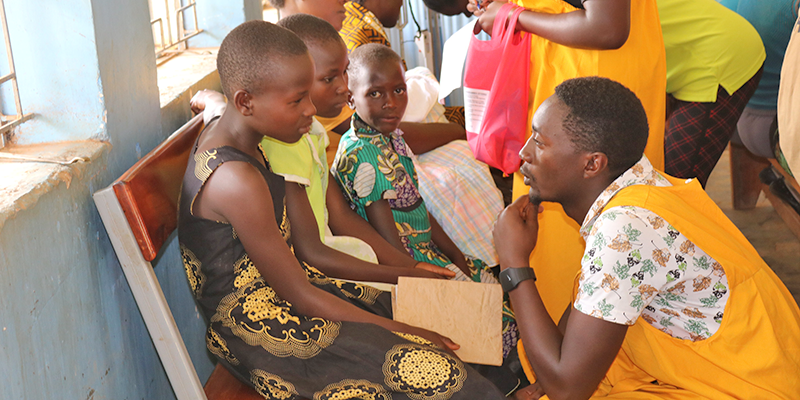

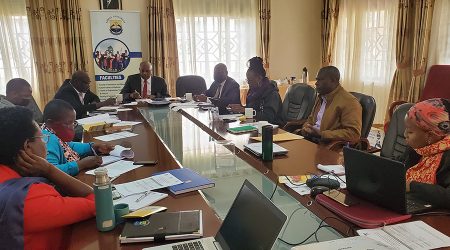
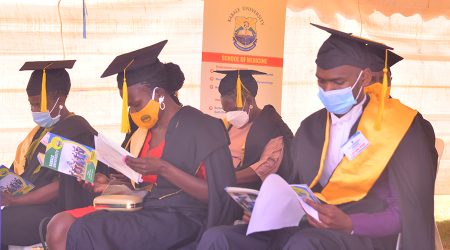
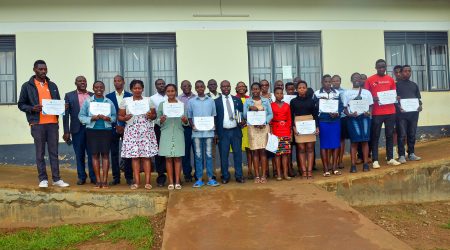
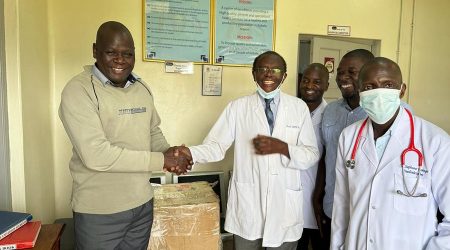
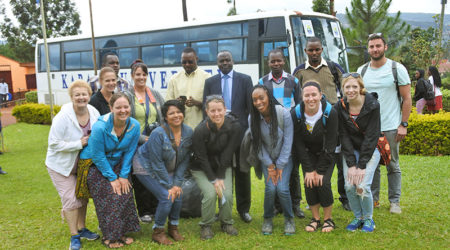
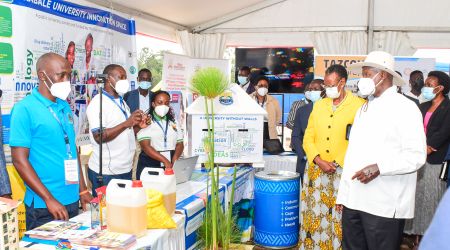
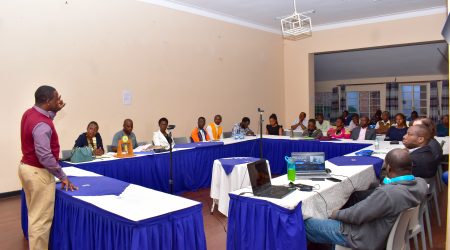
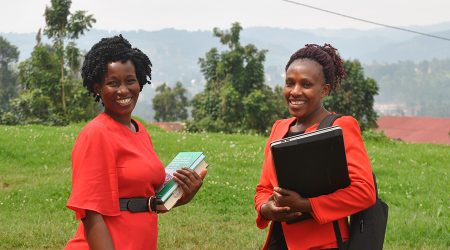
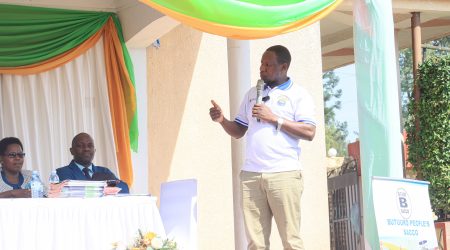
Leave a Reply